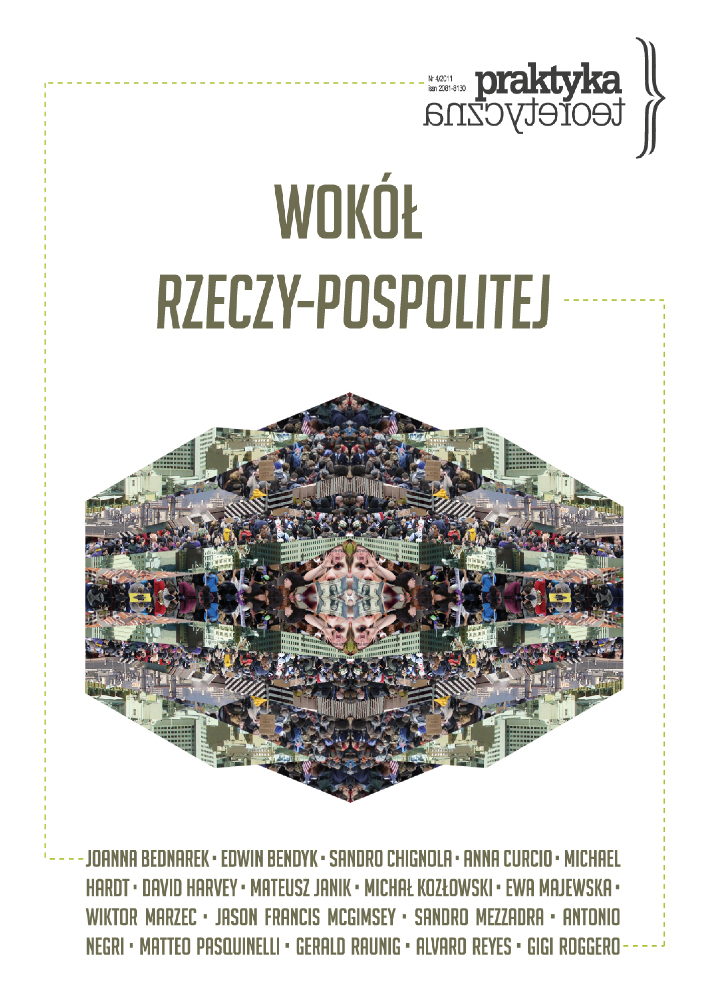Abstract
The contemporaneity has been redefined, the transition has happened. Symptoms of its end were as follows: redefinition of the concept of democracy, crisis of the classic notion of value and the failure of U.S. unilateralism. Objective determinants of the new order – arising from the crisis of sovereignty – are grounded in the separation of legitimacy and effectiveness. The constituent power is redefined as immanent tool for ordering actions. On the one hand, the biopolitical structure of reality nowadays enters the conflict with the old concept of law, on the other, it dislocates the relation between technical and political composition of the labor force. A loss of a control over a new, socialized form of living labor by the power becomes paradigmatic for the contemporaneity. Worker doesn’t contact with profit but rent, he stands in the front of “collective capitalist”, who is now a forger of the social work. In this situation, a constituent resistance is realized in a practice of exodus. The resistance becomes also a process of reclaiming the common. The common, which is opposed to the private, as well as to the public, becomes a dispositive of radical and democratic form of governance.License
“Theoretical Practice” seeks to put into practice the idea of open access to knowledge and broadening the domain of the commons. It serves the development of science, thinking and critical reflection. The journal is published in open-access mode under the CC-BY-NC-SA 4.0 license (detail available here: http://creativecommons.org/licenses/by-nc-sa/4.0/). Articles published in the journal may be freely distributed, stored, printed and utilized for academic and teaching purposes without restrictions.
They should not be, however, used for any commercial purposes or be reconstructed into derivative creations. Access to the journal may not be limited or offered for a fee by any third party.
Prospective authors are obliged to fill in, sign and send back the publishing contract compliant with the CC licencing. [PL.pdf, PL.doc, EN.pdf,EN.doc].
According to this contract, authors grant the journal a non-exclusive right to publish their work under the creative commons license (CC-BY-NC-SA 4.0) without any financial obligation on both sides of the contract.
Before submission authors should make sure that derivative materials they use are not protected by copyright preventing their non-commercial publication. Authors are responsible for any respective copyright violations.
